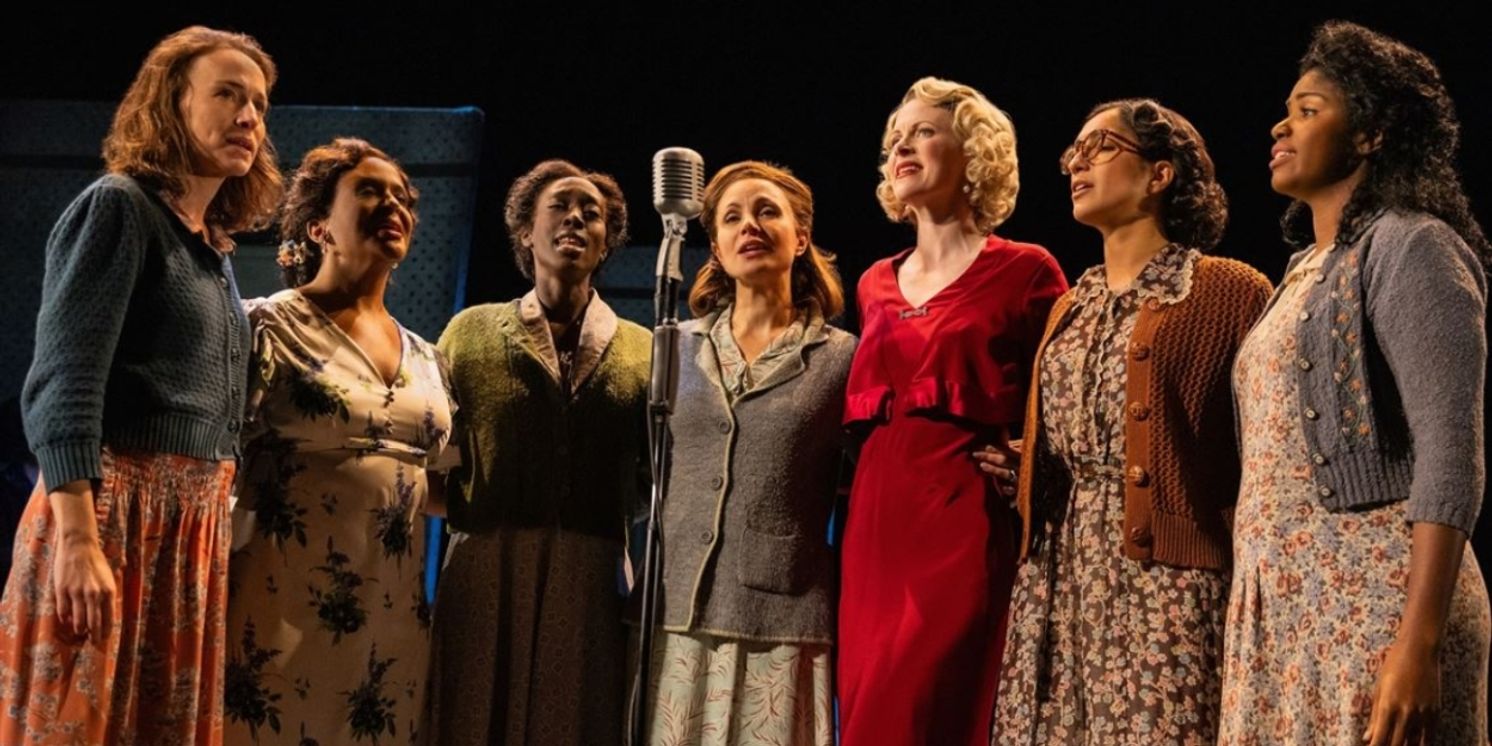Review: GIRL FROM THE NORTH COUNTRY Sings Sweet Through the Sour at Benedum Center
The Bob Dylan jukebox musical tour hits Pittsburgh

The discourse among audience members was heated after a recent performance of the national tour of Girl From The North Country (the show is adamant about all capitals there). Everyone agreed the show SOUNDED amazing, with an onstage band mingling with actor musicians singing in dense, complex harmonies that revitalized a score full of Bob Dylan's lesser-known songs. But the show itself baffled many people. Was it happy? Was it sad? Was it well-earned pathos or forced melodrama? Was the show's treatment of mental illness ham-fisted and offensive, or a tip of the hat to literary works that went before? I'll be honest, I had a LOT of thinking to do about how I felt with this one. I finally decided to go with a shrug: not the American shrug of "I don't care," but the French shrug of "who am I to judge?" (Which feels ironic to say, given that I'm a critic, but this show seems intentionally to repel easy characterization and categorization.)
Written and directed by Conor McPherson, Girl From The North Country is a musical that still feels like a play with music. It's a show aimed more directly at the head than the heart, and jammed with tropes, references and outright character homages to notable works of American Gothic literature. (This, I suspect, is where much of the audience likely got lost: it's often hard to enjoy a genre pastiche when you're neither deeply aware of the genre, or aware that you're seeing a pastiche.) When the show rockets into music mode, often with actors onstage picking up instruments or turning into "radio singers" around a microphone, none of the vagaries of plot and characterization matter much anymore. Like Spring Awakening, this is an impressionistic musical, rather than a representational one: what is being sung matters more as a mood piece and as a soundtrack cut than as actually related to character or situation. Mamma Mia, this is not.
The plot is a twisting pretzel of character dramas large and small, not all of which are resolved by the end of the story. Nick Laine (John Schiappa) runs a down-and-out boarding house during the Depression era, while taking care of his mentally ill wife Elizabeth (Jennifer Blood). Nick is having an affair with his upstairs tenant Mrs. Neilsen (Carla Woods), while his son Gene (Ben Biggers) and adopted daughter Marianne (Sharae Moultrie) deal with somewhat unusual variations on the problems of early adulthood. Then a storm blows some additional visitors in before the holidays, and things get complicated.
One thing I want to address right away about this show is that it sometimes puts its allegiance to American Gothic stylistic tropes over plot or characterization or the niceties of modern life. This is obvious in its treatment of mental health: Elizabeth and lodger Elias (Aidan Wharton) are not written without compassion or nuance, but they're also written in broad strokes. American Gothic literature is full of oddities and human wreckage. There are no mentally ill or learning disabled or neurodivergent people in the American Gothic tradition, only madwomen and half-wits. Jennifer Blood brings a wonderful sense of unpredictable but rooted reality to Elizabeth, but she's doing more work to delineate this character than the intentionally vague script is. Does Elizabeth have schizophrenia? Dementia? Brain damage? This is an American Gothic work- she's not mentally ill, she's just crazy. Similarly, Elias is a fairly transparent lift of Lenny from Of Mice and Men, down to his fits of strangling violence that he seems unable to control. Less "politically incorrect" characters are inspired by notable American Gothic works as well; itinerant Bible salesman Reverend Marlowe (Jeremy Webb) is ripped almost directly out of The Night of the Hunter and Wise Blood, and melancholic, bucolic narrator and symbolic radio host Dr. Walker (Alan Ariano) feels like a tip of the hat to Garrison Keillor's death-haunted radio show in the film A Prairie Home Companion. And like so many American Gothic works, the story doesn't end as much as it simply stops.
I hope it doesn't seem like I'm dismissing this show, simply because I can't help look at it as an academic exercise. To some extent it IS an academic exercise; writer-director Conor McPherson is an adapter of Chekhov and other great works of deeply serious art. But when it lets loose, especially in the musical numbers, it suddenly shifts into a looser, more emotionally expressive gear that suits the music well. The ballads shine like stained glass, and the uptempo songs chug along in a mix of jazz-soul and stomp-and-holler that suits both Bob Dylan and Broadway well.
If there's one thing I take away from this show in my memory, it's Jennifer Blood, in a fugue state, singing "Like a Rolling Stone" as she shifts back and forth between being her grown self, being a child, and being some 1930s idea of a rock star. It's a galvanizing performance, even if from an intentionally baffling and frustrating character. It doesn't matter much if I don't understand Elizabeth Laine. Jennifer Blood does.
Reader Reviews
Videos

